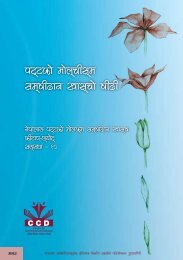A Glossary of Constitutional Terms: English / Nepali
A Glossary of Constitutional Terms: English / Nepali
A Glossary of Constitutional Terms: English / Nepali
Create successful ePaper yourself
Turn your PDF publications into a flip-book with our unique Google optimized e-Paper software.
Drafters usually stick with the older phrases and words like thoseabove because if a word in a statute has been interpreted by a court,drafters and lawyers will assume that the word will be given thesame meaning by a later court, at least when dealing with a statuteon a similar topic. This practice <strong>of</strong> using old language tends toperpetuate somewhat out <strong>of</strong> date <strong>English</strong>.Latinism<strong>English</strong> law is not much based on Roman law, but because <strong>of</strong> <strong>English</strong>history rather a lot <strong>of</strong> Latin phrases (and occasionally mediaevalFrench phrases) appear in law, though less <strong>of</strong>ten in statutes. Amongthese are:ad hoc (which means literally 'to that' and refers to a body or a rulefor a particular occasion, like an ad hoc committee set up for aparticular matter);habeas corpus (which means 'may you have the body' and refers to aspecific legal procedure to investigate a suggestion that a person isdetained against the law);nolle prosequi (which means 'do not prosecute' and is a special processin some countries under which prosecutions for criminal cases arestopped);VIIIquo warranto (which means 'by what warrant or permission' andrefers to a specific legal procedure in the Supreme Court broughtinto Nepal from India, a procedure abolished in the mid-twentiethcentury in England).A <strong>Glossary</strong> <strong>of</strong> <strong>Constitutional</strong> <strong>Terms</strong>


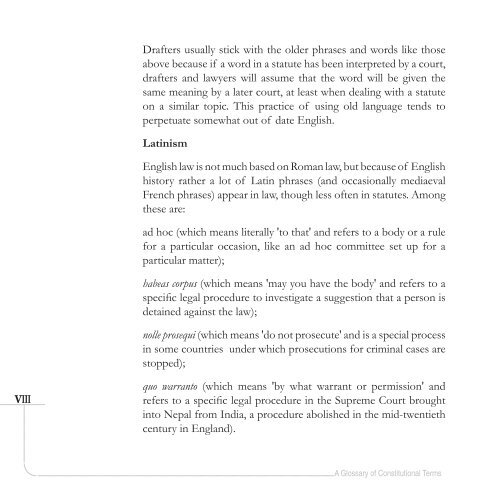



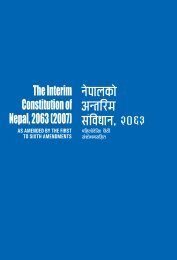
![g]k fnsf blntx? / gofF ;+l jwfg](https://img.yumpu.com/49483602/1/184x260/gk-fnsf-blntx-goff-l-jwfg.jpg?quality=85)
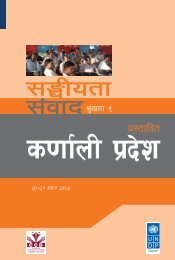
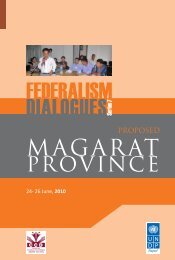
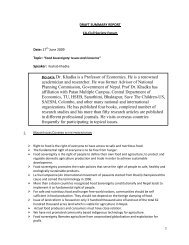
![+ljwfg;ef, /fHosf]k'g](https://img.yumpu.com/41604075/1/184x260/-ljwfgef-fhosfkg.jpg?quality=85)
